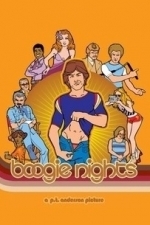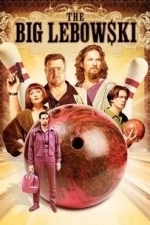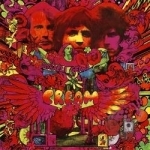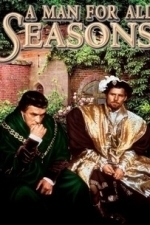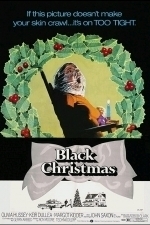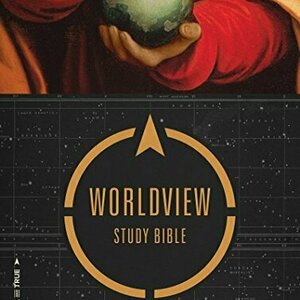Search
Search results
Aaron Taylor-Johnson recommended Boogie Nights (1997) in Movies (curated)
John Hawkes recommended The Big Lebowski (1998) in Movies (curated)
Biff Byford recommended Disraeli Gears by Cream in Music (curated)
David McK (3188 KP) rated Live and Let Die (James Bond, #2) in Books
Jan 30, 2019
"When you were young, and your heart was an open book,
You used to say live and let live
(you know you did you know you die you know you did)
But in this ever changing world in which we live in
Makes you give in and cry ...
Live and let die ..."
(cue guitar riff)
With that out of the way - Paul McCartney and Wings, later covered by Guns 'N Roses - Live and Let Die is the second James Bond book by Ian Fleming, but the eighth film in the series, and the first to star Roger Moore in the lead role.
And reading it with contemporary eyes, boy has it aged. Quite different than the movie - although the key elements (vodoo, Baron Samedi, Solitaire, American southwest setting) are intact, it can also be quite uncomfortable reading this with modern sensibilities, particularly in how Flemings (and Bond) treats the female characters, and in how the Harlem culture and denizens are portrayed.
Allowances must be made, I suppose, for the time period in which it was written ...
You used to say live and let live
(you know you did you know you die you know you did)
But in this ever changing world in which we live in
Makes you give in and cry ...
Live and let die ..."
(cue guitar riff)
With that out of the way - Paul McCartney and Wings, later covered by Guns 'N Roses - Live and Let Die is the second James Bond book by Ian Fleming, but the eighth film in the series, and the first to star Roger Moore in the lead role.
And reading it with contemporary eyes, boy has it aged. Quite different than the movie - although the key elements (vodoo, Baron Samedi, Solitaire, American southwest setting) are intact, it can also be quite uncomfortable reading this with modern sensibilities, particularly in how Flemings (and Bond) treats the female characters, and in how the Harlem culture and denizens are portrayed.
Allowances must be made, I suppose, for the time period in which it was written ...
Kevin Smith recommended A Man for All Seasons (1966) in Movies (curated)
Matthew Krueger (10051 KP) rated Black Christmas (1974) in Movies
Dec 11, 2019
Answer The Phone
With anethor remake coming out this friday, and that i already reviewed the 2006 remake. In going back to the oringal, were it alll started from. So lets take a little trip back to 1974.
Inspired by the urban legend "The babysitter and the man upstairs" and a series of murders that took place in the Westmount section of Montreal, Quebec, Moore wrote the screenplay under the title Stop Me.
The Plot: As winter break begins, a group of sorority sisters, including Jess (Olivia Hussey) and the often inebriated Barb (Margot Kidder), begin to receive anonymous, lascivious phone calls. Initially, Barb eggs the caller on, but stops when he responds threateningly. Soon, Barb's friend Claire (Lynne Griffin) goes missing from the sorority house, and a local adolescent girl is murdered, leading the girls to suspect a serial killer is on the loose. But no one realizes just how near the culprit is.
Margot Kidder remembered shooting the film as being "fun. I really bonded with Andrea Martin, filming in Toronto and Ontario. Olivia Hussey was a bit of an odd one. She was obsessed with the idea of falling in love with Paul McCartney through her psychic. We were a little hard on her for things like that.
Black Christmas eventually gained a cult following and is notable for being one of the earliest slasher films. It went on to inspire other slasher films, the biggest one of all being John Carpenter's Halloween (which was apparently inspired by Clark suggesting what a Black Christmas sequel would be like).
Black Christmas has been included multiple lists in various media outlets as one of the greatest horror films ever made. The film ranked No. 87 on Bravo's The 100 Scariest Movie Moments.
A overall classic slasher horror movie based around a hoilday.
Inspired by the urban legend "The babysitter and the man upstairs" and a series of murders that took place in the Westmount section of Montreal, Quebec, Moore wrote the screenplay under the title Stop Me.
The Plot: As winter break begins, a group of sorority sisters, including Jess (Olivia Hussey) and the often inebriated Barb (Margot Kidder), begin to receive anonymous, lascivious phone calls. Initially, Barb eggs the caller on, but stops when he responds threateningly. Soon, Barb's friend Claire (Lynne Griffin) goes missing from the sorority house, and a local adolescent girl is murdered, leading the girls to suspect a serial killer is on the loose. But no one realizes just how near the culprit is.
Margot Kidder remembered shooting the film as being "fun. I really bonded with Andrea Martin, filming in Toronto and Ontario. Olivia Hussey was a bit of an odd one. She was obsessed with the idea of falling in love with Paul McCartney through her psychic. We were a little hard on her for things like that.
Black Christmas eventually gained a cult following and is notable for being one of the earliest slasher films. It went on to inspire other slasher films, the biggest one of all being John Carpenter's Halloween (which was apparently inspired by Clark suggesting what a Black Christmas sequel would be like).
Black Christmas has been included multiple lists in various media outlets as one of the greatest horror films ever made. The film ranked No. 87 on Bravo's The 100 Scariest Movie Moments.
A overall classic slasher horror movie based around a hoilday.
MaryAnn (14 KP) rated CSB Worldview Study Bible in Books
Nov 4, 2019
The CSB Worldview Study Bible features extensive worldview study notes and articles by notable Christian scholars to help Christians better understand the grand narrative and flow of Scripture within the biblical framework from which we are called to view reality and make sense of life and the world. Guided by general editors David S. Dockery and Trevin K. Wax, this Bible is an invaluable resource and study tool that will help you to discuss, defend, and clearly share with others the truth, hope, and practical compatibility of Christianity in everyday life.
Features include:
Extensive worldview study notes
Over 130 articles by notable Christian scholars
Center-column references
Smyth-sewn binding
Presentation page
Two ribbon markers
Two-piece gift box, and more
General Editors: David S. Dockery and Trevin Wax
Associate Editors: Constantine R. Campbell, E. Ray Clendenen, Eric J. Tully
Contributors include: David S. Dockery, Trevin K. Wax, Ray Van Neste, John Stonestreet, Ted Cabal, Darrell L. Bock, Mary J. Sharp, Carl R. Trueman, Bruce Riley Ashford, R. Albert Mohler Jr., William A. Dembski, Preben Vang, David K. Naugle, Jennifer A. Marshall, Aida Besancon Spencer, Paul Copan, Robert Smith Jr., Douglas Groothuis, Russell D. Moore, Mark A. Noll, Timothy George, Carla D. Sanderson, Kevin Smith, Gregory B. Forster, Choon Sam Fong, and more.
The CSB Worldview Study Bible features the highly readable, highly reliable text of the Christian Standard Bible (CSB). The CSB stays as literal as possible to the Bibles original meaning without sacrificing clarity, making it easier to engage with Scriptures life-transforming message and to share it with others.
This is a wonderful Bible that not only gives us God's word but teaches through credible editors about the Christians view of the world. There are articles that show us the Biblical view of that issue; such a: the Biblical view of music, Personal Finances. Ther is an article on how Christians should relate to the government along with various other interesting articles.
This is a great study Bible for new believers, for discipling, for those interested in how God's word relates to issues around us today. How we as Christians should respond to a world that is turning against Christians.
This is a beautiful Bible, that is easy to read and has full-color maps. This will be a great addition to anyone's library.
CSB Worldview Study Bible
I received this book free from the publisher. I was not required to write a positive review and the opinions I have expressed are my own. I am disclosing this in accordance with the Federal Trade Commissions 16 CFR, Part 255 : Guides Concerning the Use of Endorsements and Testimonials in Advertising.
Features include:
Extensive worldview study notes
Over 130 articles by notable Christian scholars
Center-column references
Smyth-sewn binding
Presentation page
Two ribbon markers
Two-piece gift box, and more
General Editors: David S. Dockery and Trevin Wax
Associate Editors: Constantine R. Campbell, E. Ray Clendenen, Eric J. Tully
Contributors include: David S. Dockery, Trevin K. Wax, Ray Van Neste, John Stonestreet, Ted Cabal, Darrell L. Bock, Mary J. Sharp, Carl R. Trueman, Bruce Riley Ashford, R. Albert Mohler Jr., William A. Dembski, Preben Vang, David K. Naugle, Jennifer A. Marshall, Aida Besancon Spencer, Paul Copan, Robert Smith Jr., Douglas Groothuis, Russell D. Moore, Mark A. Noll, Timothy George, Carla D. Sanderson, Kevin Smith, Gregory B. Forster, Choon Sam Fong, and more.
The CSB Worldview Study Bible features the highly readable, highly reliable text of the Christian Standard Bible (CSB). The CSB stays as literal as possible to the Bibles original meaning without sacrificing clarity, making it easier to engage with Scriptures life-transforming message and to share it with others.
This is a wonderful Bible that not only gives us God's word but teaches through credible editors about the Christians view of the world. There are articles that show us the Biblical view of that issue; such a: the Biblical view of music, Personal Finances. Ther is an article on how Christians should relate to the government along with various other interesting articles.
This is a great study Bible for new believers, for discipling, for those interested in how God's word relates to issues around us today. How we as Christians should respond to a world that is turning against Christians.
This is a beautiful Bible, that is easy to read and has full-color maps. This will be a great addition to anyone's library.
CSB Worldview Study Bible
I received this book free from the publisher. I was not required to write a positive review and the opinions I have expressed are my own. I am disclosing this in accordance with the Federal Trade Commissions 16 CFR, Part 255 : Guides Concerning the Use of Endorsements and Testimonials in Advertising.
graveyardgremlin (7194 KP) rated The Taken (Celestial Blues, #1) in Books
Feb 15, 2019
Even though I'm not especially fond of angels, I decided to try out this new series based on my previous experiences with Vicki Pettersson's work. Sadly, after an intriguing first chapter, any enjoyment I may have expected never came knocking (guess it was too busy knockin' on heaven's door).
Meet one of the two main characters, rockabilly girl Katherine "Kit" Craig. She's an eternally optimistic and peppy reporter whose best friend and co-worker, Nicole, was just murdered while following a lead. Our other MC is a haunted Centurion angel named Griffin Shaw who ushers the newly murdered into the afterlife, otherwise known as the Everlast, while bemoaning the murders of both himself and his wife Evie back in 1960. After making a mistake concerning Nicole, he's been sent back to earth as a human with some angelic senses still intact. Kit and Grif soon meet up and begin investigating the circumstances around Nicole's death, whilst Griffin seeks out any details involving his own.
Problem Number One:
The Cardboard Characters
Character development is supposed to unfold over the course of a book, in this case it actually appeared to deteriorate as the book went on. Kit never developed into anything but one of those annoyingly chipper people you just want to hit with a sledgehammer, while Grif started promisingly enough but then stagnated. They were both very shallow characterizations, and on top of that, I never understood Kit's actions or reactions to just about anything. I never felt her sadness about her best friend's death, whom she rarely gave a passing thought, believed she was smart (by the end, I thought her a dolt), or seem in any way human with nary a rational thought in her head. About mid-way through the book, Grif tells her he's an angel after they kiss, so what does she do? Does she a) run away screaming, b) think he's a few feathers short of a goose and tell him to get hell out of her house and life, or c) have a calm Q&A session followed by giving him a whatfor that consists of "I won't kiss you again" and "you're watching me walk out that door (in her own house) because you can't handle any emotion blah, blah, blah by pretending you're an angel" and then proceed to attend a charity event wherein she acts and converses normally, like nothing happened? If you picked "c" *ding ding ding*, you're a winner! Because as we all know, any sensible guy will pull out the "I'm an angel" trick and expect a woman to believe him. *rolls eyes* Never was it ever crystal clear if Kit thought Grif was either crazy or a liar. It was all a bit hazy, but what can you expect from someone we're never allowed to know? All we discern is she dresses and lives (somewhat) rockabilly, but it's all a veneer to her hollowness inside, which led me to dub her Rockabilly Barbie.
<img src="http://i272.photobucket.com/albums/jj183/piscesrain/reviews/RockabillyBarbie.jpg">;
Because that's all she is and nothing more. The only character that I found a little more well-rounded was the secondary character Bridget Moore and the two Centurions introduced close to the end. Everyone else was either forgettably two-dimensional or they were a caricature, a la Caleb Chambers and Paul Raggio.
Problem Number Two:
The Relationship(s)
I'm expected to believe in a possible relationship between Grif and Rockabilly Barbie, err I mean Kit, but there's not much there to believe in. Like the characters, it was shallow with the same descriptions reiterated over and over again. Basically it's a case of telling instead of showing. I felt no love, maybe some attraction, but that's all she wrote. Likewise I never bought that Kit and Paul could ever have gotten far enough to be married, they were just too different. Most people don't do a 180 after they get married, the seed of who Paul really was deep down inside would have already been there and if Kit was even a fraction astute, she should have caught that. All this served was to be a plot point in the book.
Problem Number Three:
The Plot(s)
The main plot involving Nicole's death and Chambers had a "been there, done that" quality to it. The plot didn't shock me or seem like anything new, I've come across the same before or at least plots that were very close, and it wasn't even told in a fresh way. So I wasn't as affected by anything in the book as I probably should have been, partially due to the indifference I felt and the fact that I figured out everything long before the author dropped, what I guess she thought, were informational bombshells.
The book had three major plotlines: Grif and Evie's deaths, Nicole's death/prostitution ring, and Grif and the Pure Anas' philosophical moments. They weren't juggled well at all. Ms. Pettersson should have picked only one and paid more attention to developing that specific plot and the characters. The scenes with Anas (or Anne) especially didn't mesh with the other stories and felt as if the author was overreaching the boundaries set up by the book. One scene in particular was extremely bizarre and pointless to the book as a whole.
Where was the noir? I've seen enough film noirs to know it ain't here.
Problem Number Four:
The Ending
What happened at the end is what I'd expect in a book that's exclusively romance and not in a mystery/urban fantasy hybrid, which made the rushed ending seem even more ridiculous and sappy. It was incredibly unbelievable to the story and didn't seem to set up the next book in any way. Also, one of the plotlines was all but left dangling with no foreshadowing or anything. Poor, poor, poor execution. Don't expound on a storyline if you're not going to finish it up or at least leave it dangling in a way that makes the reader want to come back. All that boring set-up for a completely stupid and cheesy ending. I expected rainbows and unicorns to pop out at any moment.
Overall the book felt more like a rough copy than a finished one and definitely could have used a few more goings over. Several descriptions were rushed and chaotic or simply poorly done so that I was scrambling to picture what was going on. The book is almost 400 pages and it is simply too long. With so many storylines, I'm not sure how they managed to both crawl and have very little action at the same time. I was going to give this two stars because I didn't hate the book, that would imply that it elicited any feelings what-so-ever, but the truth of the matter is that there isn't one thing I really liked about the book either. The only way I'd read a sequel to the bafflingly-named Celestial Blues series is if it featured different leads like the aforementioned Centurions, and even then I'd cautiously dip my toes into the book.
Originally reviewed: June 29
Received: Amazon Vine
Meet one of the two main characters, rockabilly girl Katherine "Kit" Craig. She's an eternally optimistic and peppy reporter whose best friend and co-worker, Nicole, was just murdered while following a lead. Our other MC is a haunted Centurion angel named Griffin Shaw who ushers the newly murdered into the afterlife, otherwise known as the Everlast, while bemoaning the murders of both himself and his wife Evie back in 1960. After making a mistake concerning Nicole, he's been sent back to earth as a human with some angelic senses still intact. Kit and Grif soon meet up and begin investigating the circumstances around Nicole's death, whilst Griffin seeks out any details involving his own.
Problem Number One:
The Cardboard Characters
Character development is supposed to unfold over the course of a book, in this case it actually appeared to deteriorate as the book went on. Kit never developed into anything but one of those annoyingly chipper people you just want to hit with a sledgehammer, while Grif started promisingly enough but then stagnated. They were both very shallow characterizations, and on top of that, I never understood Kit's actions or reactions to just about anything. I never felt her sadness about her best friend's death, whom she rarely gave a passing thought, believed she was smart (by the end, I thought her a dolt), or seem in any way human with nary a rational thought in her head. About mid-way through the book, Grif tells her he's an angel after they kiss, so what does she do? Does she a) run away screaming, b) think he's a few feathers short of a goose and tell him to get hell out of her house and life, or c) have a calm Q&A session followed by giving him a whatfor that consists of "I won't kiss you again" and "you're watching me walk out that door (in her own house) because you can't handle any emotion blah, blah, blah by pretending you're an angel" and then proceed to attend a charity event wherein she acts and converses normally, like nothing happened? If you picked "c" *ding ding ding*, you're a winner! Because as we all know, any sensible guy will pull out the "I'm an angel" trick and expect a woman to believe him. *rolls eyes* Never was it ever crystal clear if Kit thought Grif was either crazy or a liar. It was all a bit hazy, but what can you expect from someone we're never allowed to know? All we discern is she dresses and lives (somewhat) rockabilly, but it's all a veneer to her hollowness inside, which led me to dub her Rockabilly Barbie.
<img src="http://i272.photobucket.com/albums/jj183/piscesrain/reviews/RockabillyBarbie.jpg">;
Because that's all she is and nothing more. The only character that I found a little more well-rounded was the secondary character Bridget Moore and the two Centurions introduced close to the end. Everyone else was either forgettably two-dimensional or they were a caricature, a la Caleb Chambers and Paul Raggio.
Problem Number Two:
The Relationship(s)
I'm expected to believe in a possible relationship between Grif and Rockabilly Barbie, err I mean Kit, but there's not much there to believe in. Like the characters, it was shallow with the same descriptions reiterated over and over again. Basically it's a case of telling instead of showing. I felt no love, maybe some attraction, but that's all she wrote. Likewise I never bought that Kit and Paul could ever have gotten far enough to be married, they were just too different. Most people don't do a 180 after they get married, the seed of who Paul really was deep down inside would have already been there and if Kit was even a fraction astute, she should have caught that. All this served was to be a plot point in the book.
Problem Number Three:
The Plot(s)
The main plot involving Nicole's death and Chambers had a "been there, done that" quality to it. The plot didn't shock me or seem like anything new, I've come across the same before or at least plots that were very close, and it wasn't even told in a fresh way. So I wasn't as affected by anything in the book as I probably should have been, partially due to the indifference I felt and the fact that I figured out everything long before the author dropped, what I guess she thought, were informational bombshells.
The book had three major plotlines: Grif and Evie's deaths, Nicole's death/prostitution ring, and Grif and the Pure Anas' philosophical moments. They weren't juggled well at all. Ms. Pettersson should have picked only one and paid more attention to developing that specific plot and the characters. The scenes with Anas (or Anne) especially didn't mesh with the other stories and felt as if the author was overreaching the boundaries set up by the book. One scene in particular was extremely bizarre and pointless to the book as a whole.
Where was the noir? I've seen enough film noirs to know it ain't here.
Problem Number Four:
The Ending
What happened at the end is what I'd expect in a book that's exclusively romance and not in a mystery/urban fantasy hybrid, which made the rushed ending seem even more ridiculous and sappy. It was incredibly unbelievable to the story and didn't seem to set up the next book in any way. Also, one of the plotlines was all but left dangling with no foreshadowing or anything. Poor, poor, poor execution. Don't expound on a storyline if you're not going to finish it up or at least leave it dangling in a way that makes the reader want to come back. All that boring set-up for a completely stupid and cheesy ending. I expected rainbows and unicorns to pop out at any moment.
Overall the book felt more like a rough copy than a finished one and definitely could have used a few more goings over. Several descriptions were rushed and chaotic or simply poorly done so that I was scrambling to picture what was going on. The book is almost 400 pages and it is simply too long. With so many storylines, I'm not sure how they managed to both crawl and have very little action at the same time. I was going to give this two stars because I didn't hate the book, that would imply that it elicited any feelings what-so-ever, but the truth of the matter is that there isn't one thing I really liked about the book either. The only way I'd read a sequel to the bafflingly-named Celestial Blues series is if it featured different leads like the aforementioned Centurions, and even then I'd cautiously dip my toes into the book.
Originally reviewed: June 29
Received: Amazon Vine
